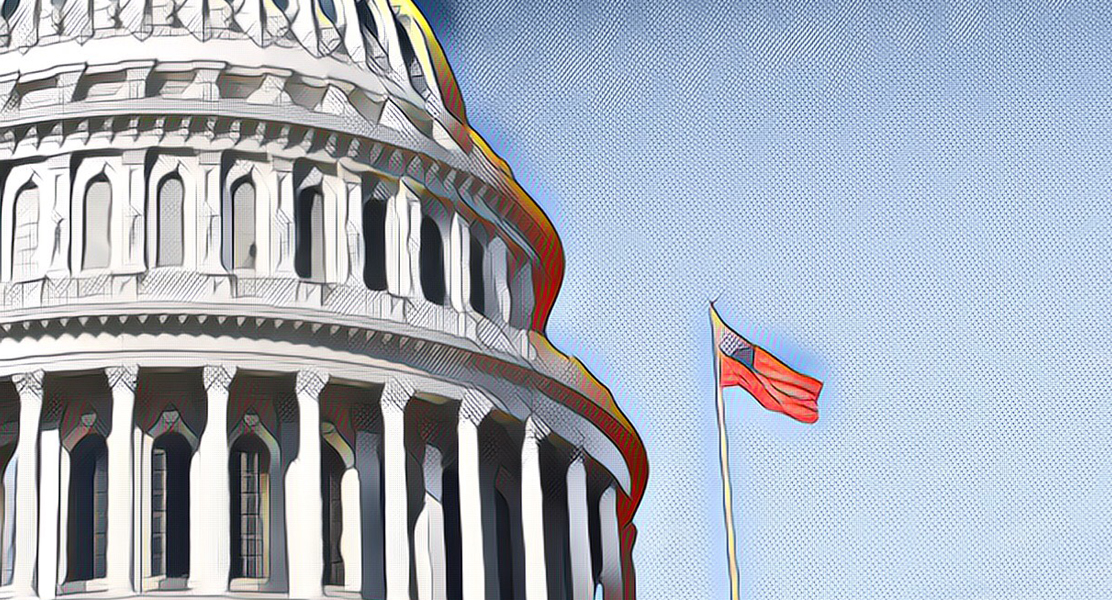Fairness For All Act aims to expand nondiscrimination protections, secure religious exemptions

A bill called “The Fairness For All Act” (FFAA) was recently introduced in the U.S. House of Representatives, providing a new marker for debates about LGBTQ rights and religious liberty. It’s an alternative to The Equality Act, which passed the House with unanimous support from Democrats and a handful of Republicans but has not been taken up by the Senate.
FFAA is sponsored by Rep. Chris Stewart, R-Utah, and supported by a small coalition addressing clashes between LGBTQ nondiscrimination protections and religious objections that have proven difficult for legislatures and courts.
BJC does not endorse the legislation, but we welcome the effort of advancing both nondiscrimination and religious liberty. In this instance, they include both religious entities that oppose same-sex marriage but are willing to support LGBTQ legal protections and LGBTQ advocates that are willing to provide explicit exemptions for religious objectors. Criticism of the bill was swift and harsh, which is not surprising. For years, some advocates have perpetuated the idea that LGBTQ rights and religious liberty are locked in irreconcilable conflict. BJC has instead urged conversation to explore prospects for understanding and common ground.
According to its sponsors, FFAA provides a middle ground by extending civil rights protections to prohibit acts of discrimination on the basis of sex, sexual orientation and gender identity while establishing explicit exemptions for religious institutions and small businesses. Like the Equality Act, it would amend several federal civil rights laws that currently bar discrimination based on race, religion and other protected categories in housing, employment and places of public accommodation to include these additional protected classes. Unlike the Equality Act, this measure reflects the concern held by some religious conservatives and some religious liberty advocates that such sweeping non-discrimination provisions may infringe upon the rights of religious institutions and individuals. It offers one approach to bridging the divide – a complex piece of legislation to avoid “winner-take-all” legislation that many believe is likely to deepen and prolong conflict.
BJC serves religious liberty interests of individuals, churches and denominational entities that have diverse views on matters of theology, including theology about human sexuality. Solely dedicated to faith freedom for all, we have avoided taking positions on LGBTQ laws. True to our mission, we recognize the diversity of religious perspectives and significant moral implications at stake in defense of nondiscrimination and conscience.
Conflicts between nondiscrimination and religious liberty are difficult. In fact, federal and state laws protect religious liberty and nondiscrimination in different ways in different contexts – a topic I researched and explored in more detail in a book dedicated to the prospects for finding common ground. BJC has long held that discrimination in government-funding programs and the commercial marketplace pose a different dilemma than church teachings offered in a religious context. As the legal landscape changes, recognizing these differences can help us navigate and preserve religious freedom. Protections for religious freedom don’t resolve theological differences. Carefully crafted, they leave room to respect them.
As BJC has consistently observed, conflicts between LGBTQ rights and religious objections to same-sex marriage have had a severe impact on the public’s understanding of and support for religious liberty. In many cases, advocates have failed to recognize the interests of those they deem “on the other side.” Whether dedicated to protecting LGBTQ rights or religious liberty, this failure has exaggerated conflicts.
FFAA seeks to break through the impasse. It addresses various categories of conflict head-on, including wedding vendors, counseling, medical care, and adoption, with proposed compromises that reflect the drafters’ priorities. While its prospects for passage are slim, BJC will examine the legislation closely. We recognize that crafting religious exemptions – whether legislatively or judicially – is one of the most important and sensitive aspects of our religious liberty tradition. FFAA’s approach is complex. It responds to concrete examples where conflicts occur and provides exemptions to meet specific religious needs. Unfortunately, FFAA also broadly exempts religious entities without regard to whether they receive public funding and would be subject to public expectations of nondiscrimination. Failure to recognize the impact of federal funding on expectations of nondiscrimination is a glaring deficiency.
Still, it is important to note what is new in the debate. Advocates for national LGBTQ protections and advocates for religious institutions that oppose same-sex marriage worked together to draft legislation in response to the needs of their communities and despite their critics. Their effort is worthy of consideration and continued conversation.
Conversations are crucial for all sides to understand our religious differences and find ways we can protect religious liberty for all.
Holly Hollman is general counsel of BJC.




